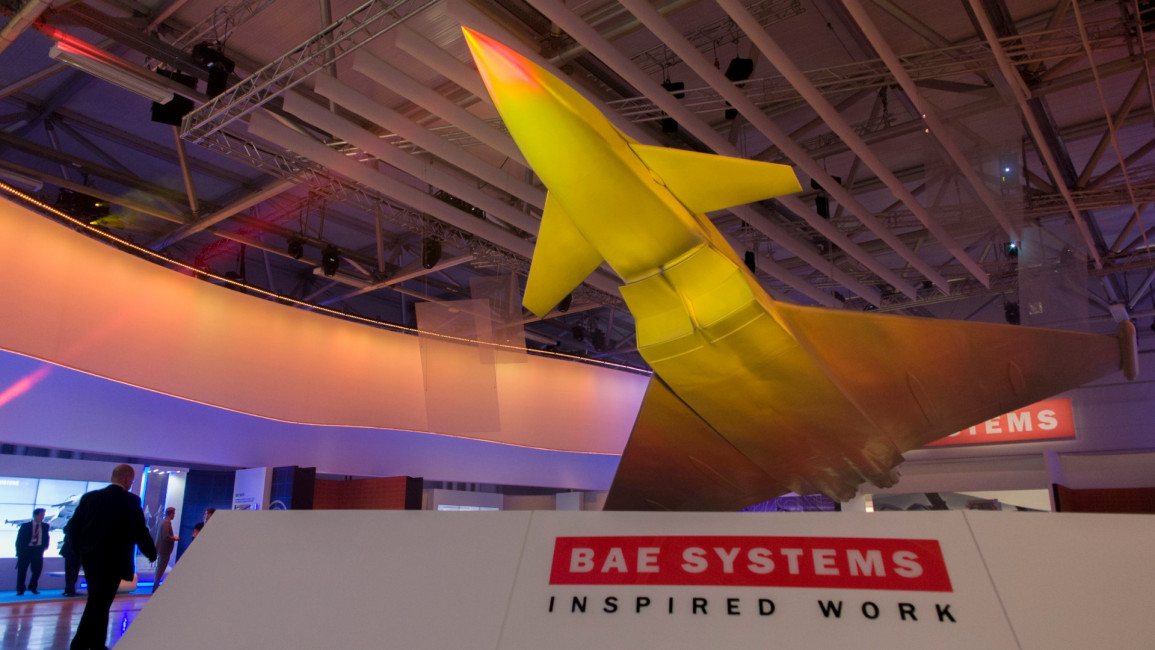UK arms maker BAE sold $19 billion in weapons to Saudi Arabia during Yemen war
The leading arms manufacturer revealed in a recent annual report that it earned £2.5 billion in revenue from sales to the Saudi military last year.
"The last five years have seen a brutal humanitarian crisis for the people of Yemen, but for BAE it's been business as usual. The war has only been possible because of arms companies and complicit governments willing to support it," Andrew Smith from CAAT said.
Thousands of Yemeni civilians have died since March 2015, when a Saudi-led coalition intervened in the country's civil war and began a bombing campaign which has killed thousands of civilians.
Human rights organisations have called for a ban on these sales.
Germany ceased arms exports to Saudi Arabia following the murder of Saudi journalist Jamal Khashoggi last year. But Europe's largest arms manufacturer, BAE Systems, has not followed suit.
CAAT's analysis shows that the value of BAE's arms sales to Saudi Arabia is greater than the total value of UK export licenses. This discrepancy can be accounted for by the fact that the official export total doesn't include arms sold to the kingdom via open licenses, The Guardian reported.
"These figures expose the cosy relationship between the Saudi regime and BAE. But they also imply that the value of UK arms sales is far greater than government figures show," Smith said.
Comment: Could Mohammed bin Salman's power grab unravel Al Saud rule?
Despite a UK court in June 2019 ordering an end to arms exports to Saudi Arabia that could be used in Yemen, the government has twice admitted to "accidentally" licensing weapons to the kingdom.
The June ruling declared that it was illegal for the government to license weapons exports to Saudi Arabia without first assessing whether there was a "historic pattern of breaches of international humanitarian law" by the Saudi-led coalition that has fought Yemen's Houthi rebels since 2015.
Saudi Arabia is the single largest destination for BAE Systems military aircraft - accounting for 35 percent of its aircraft sales. The ultra-conservative kingdom is BAE's third-largest customer, after the US department of defence and the UK's ministry of defence, according to The Guardian.
BAE's relationship with Saudi Arabia is maintained through large contracts signed between the UK and the kingdom, with the arms maker effectively playing the role of a sub-contractor.
A UK government spokesperson told The Guardian: "The government takes its export responsibilities seriously and assesses all export licences in accordance with strict licensing criteria. We will not issue any export licences where to do so would be inconsistent with these criteria."
A BAE Systems spokesperson said that the company complies with all UK laws on arms' exports.
"We provide defence equipment, training and support under government to government agreements between the UK and the Kingdom of Saudi Arabia," he said.
The UK and Saudi Arabia have been close political and military allies for decades.
Despite recent human rights scandals, the murder of dissident journalist Jamal Khashoggi and devastation of Yemen, London has refused to downgrade cooperation with Riyadh.
London claims lucrative multi-billion-dollar defence exports allow continued influence and leverage, protects British jobs in the arms industry and secures cooperation against terrorism.
Follow us on Facebook, Twitter and Instagram to stay connected



